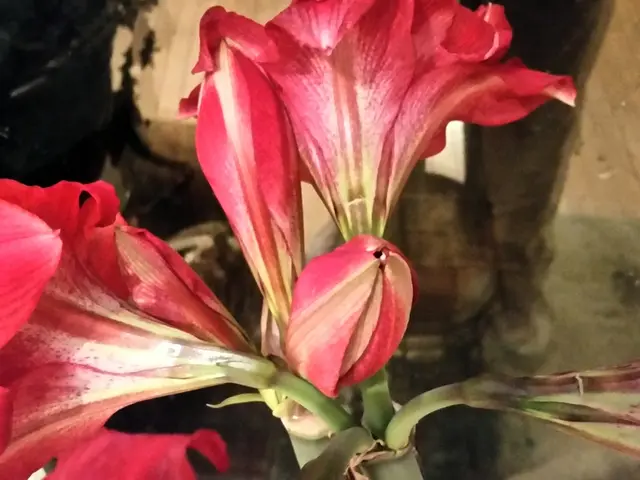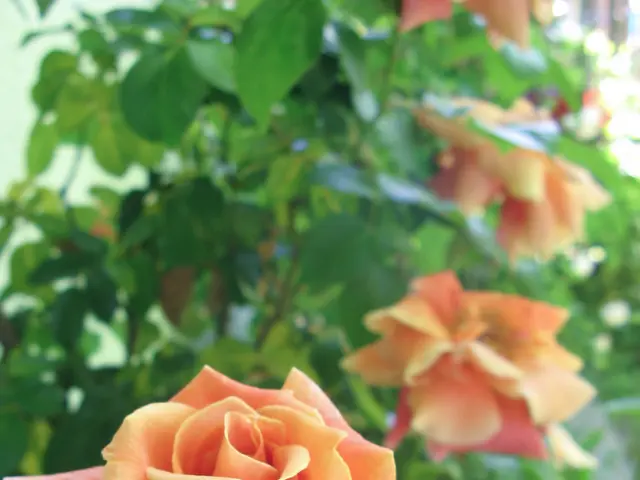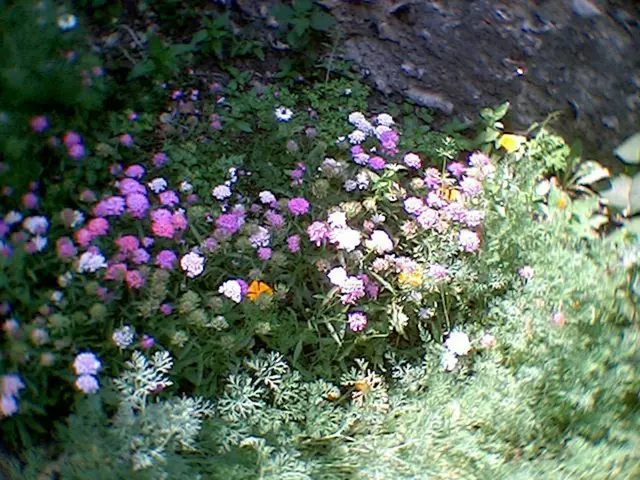Tips for Novice Gardeners to Manage Pests Effectively
Pest-free Paradise: Freestyling Your Organic Garden
Starting a garden can be exciting, especially for those who prefer an organic approach. Many beginners assume that swapping chemicals for organic pesticides is the key to an organic garden. However, favoring nature's plan often results in fewer pest issues. Benefit your plants, the environment, and your wallet with these ten easy hacks to cultivate your own chemical-free organic garden.
*Disclaimer: Following these tips may result in affiliate commissions at no additional cost to you.*
Calm Down and Relax: Don't Overreact
When we're new to gardening, we might overreact when spotting insects and immediately think something needs to be done right away. Most of the time, this isn't necessary. Most of the bugs you see aren't harmful and are doing good work, like pollinating or predating on pest insects. Alternatively, they may not actively affect your garden positively or negatively.
Don't panic – it's probably just a helpful critter!
If you spot something you're unsure of, take a moment to research first rather than automatically reaching for pesticides.
Healthy Plants: The Secret Weapon
Strong, thriving plants are less prone to pests and disease. Proper soil health, seasonal planting, and watering strategies can help create healthy, vigorous plants.
A healthy plant is better equipped to fend off any pests compared to a weak one. This isn't a guarantee that pests won't come, but it does make your plants more resilient.
Homemade Pesticides: Proceed with Caution
Searching the internet for homemade pesticide recipes is common among organic gardeners. While this isn't necessarily a bad idea, proceed with caution.
It's essential to test new recipes on a small section of your plants before applying it to the entire garden. The last thing you want is to accidentally harm your plants with a DIY pesticide solution.
Nature's Protectors: Friendly Coverings
Who said covers are only for frost or heat regulation? Once the weather warms up, using fabric covers like insect netting can keep unwanted pests out. It's breathable and allows air, water, and light to reach plants. Insect netting is fantastic for preventing pests like moths or beetles from landing on your plants.
Know the Risks: Organic Does Not Mean Safe
Even organic pesticides can carry potential risks. Be sure to read labels thoroughly before use, understanding that it could still be toxic to bees, beneficial bugs, birds, toads, and other wildlife. Some organic pesticides may be harmful to pollinators, so apply them in the evenings after they've gone to bed.
Be Wary of Armchair Experts
The internet is a vast resource of advice, but not all information is created equal. Occasionally, well-intentioned advice givers in online groups may not offer the best solutions for your specific circumstances.
Research and consult sources like university websites or your local extension agency to gain accurate and reliable information tailored to your region and specific growing needs.
What Works for Someone Else, Might Not Work for You
Even tips that work wonders for other gardeners may not have the same success with your garden. Every garden is unique, and testing approaches may help you determine what works best for your personal garden space.
Things like trap cropping for certain pests may work for one person but not another. Don't be afraid to experiment and find your gardening groove.
Ecosystem Gardening: Let Nature Work for You
If you truly want to take the organic approach, strive towards creating an ecosystem in your garden. A healthy ecosystem is thriving, full of life, and takes care of itself. It looks like having good bugs like ladybugs and lacewings that feast on aphids and other pests.
This is a process that requires patience and time, as beneficial insects must find your garden. If you're persistent, however, you'll begin to see positive changes over time.
Baby Steps: Don't Rush the Journey
New gardeners can feel overwhelmed by the myriad of organic gardening techniques available. Instead of diving headfirst into every available strategy, take your time to learn about each individual technique and apply them gradually. You won't have to implement every strategy at once – or even in the first year.
Taking baby steps ensures you have a solid foundation of knowledge before venturing further into the world of organic gardening.
Access Essential Resources
To conquer the challenges of organic gardening, check out The Beginner's Guide to Natural Pest Control(a free online mini-course) which provides essential knowledge for switching from traditional pesticides to organic alternatives and strategies for preventing pest outbreaks.
Master the secrets of organic gardening and grow a thriving, chemical-free paradise right in your backyard!
- To maintain soil health and promote organic gardening, consider garden printables for seasonal planting guides, watering strategies, and useful gardening tips.
- As you progress in your organic gardening journey, consider adopting a lifestyle that incorporates home-and-garden practices for a more eco-friendly approach to pest control.
- Embracing lifestyle changes, you may discover the benefits of employing nature's protectors, such as friendly coverings like insect netting, in your organic gardening practices.
- Strive for a harmonious and balanced garden ecosystem by focusing on the prevention of pests through methods like ecosystem gardening, which encourages the presence of beneficial bugs like ladybugs and lacewings.








